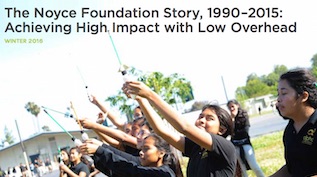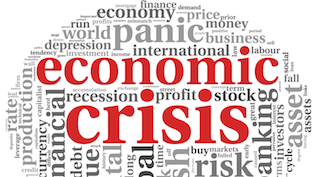Coming to a close: Lessons from two spend down family foundations
Posted on April 14, 2016 by Ann Bowers, Catherine Brozowski, Lois Mitchell, Pendred Noyce

If your foundation decided to spend down and cease operations in a defined period of time, what might the process look like? It’s a question more family foundation boards are facing, as entrepreneurs pursue philanthropy the way they conducted business – with an exit plan in mind… Read More







